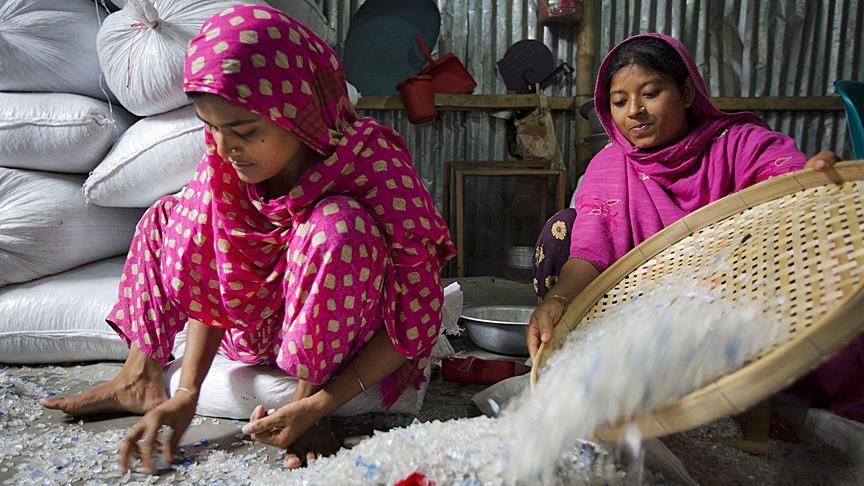Myanmar: One in five children prefers work over school
Incoming National League for Democracy government takes charge with country on verge of realizing economic boom at cost of rise in illiteracy
 File photo (AA)
File photo (AA)
By Kyaw Ye Lynn
YANGON, Myanmar
Aung San Suu Kyi's incoming government was faced with another uphill task Monday -- figures released by Myanmar's Department of Population showed tremendous economic concerns for the nation's youth.
The Occupation and Industry, Census Report Volume 2-B showed that around 1.6 million children aged 10-17 (21 percent) work instead of attending school.
“[These children] are missing out on the education that can help them get good jobs and have employment security when they grow up,” says Janet E. Jackson, United Nations Population Fund (UNFPA) Representative for Myanmar.
The report also showed 4 percent unemployment among people aged 15-64, however for those aged 15-24 it more than doubled to 9.3 per cent.
“The high unemployment rate among young people reveals a need for national labour policies and strategies that promote investment into jobs for young people," Jackson added.
Myanmar is on the verge of realizing an economic boom—known as the demographic dividend—thanks to its youthful population. But the report underlined that this is an opportunity that can only be realized if the country invests in children and young people.
It also highlighted a profound gender gap in the country’s labour market.
Among the population aged 15-64, only 50.5 per cent of women are economically active compared to 85.2 per cent of men.
“These figures show women’s profound vulnerability when it comes to paid employment,” said Jackson, but they also reveal women’s economic potential.
"The fact that a quarter of the productive population does not contribute directly to the economy implies Myanmar could reap a significant 'gender dividend’ if opportunities for women were increased,” she added.
The census also revealed that one in five people over 65 years old still works, the majority of whom are engaged in “agriculture, forestry and fishing".
“The data suggest that economic realities oblige many people to continue heavy manual labour into old age to survive. This underlines the need for adequate social services and policies that serve the aged,” Jackson said.
Aung San Suu Kyi's National League for Democracy takes power April 1, following more than five decades of military rule.
Anadolu Agency website contains only a portion of the news stories offered to subscribers in the AA News Broadcasting System (HAS), and in summarized form. Please contact us for subscription options.







